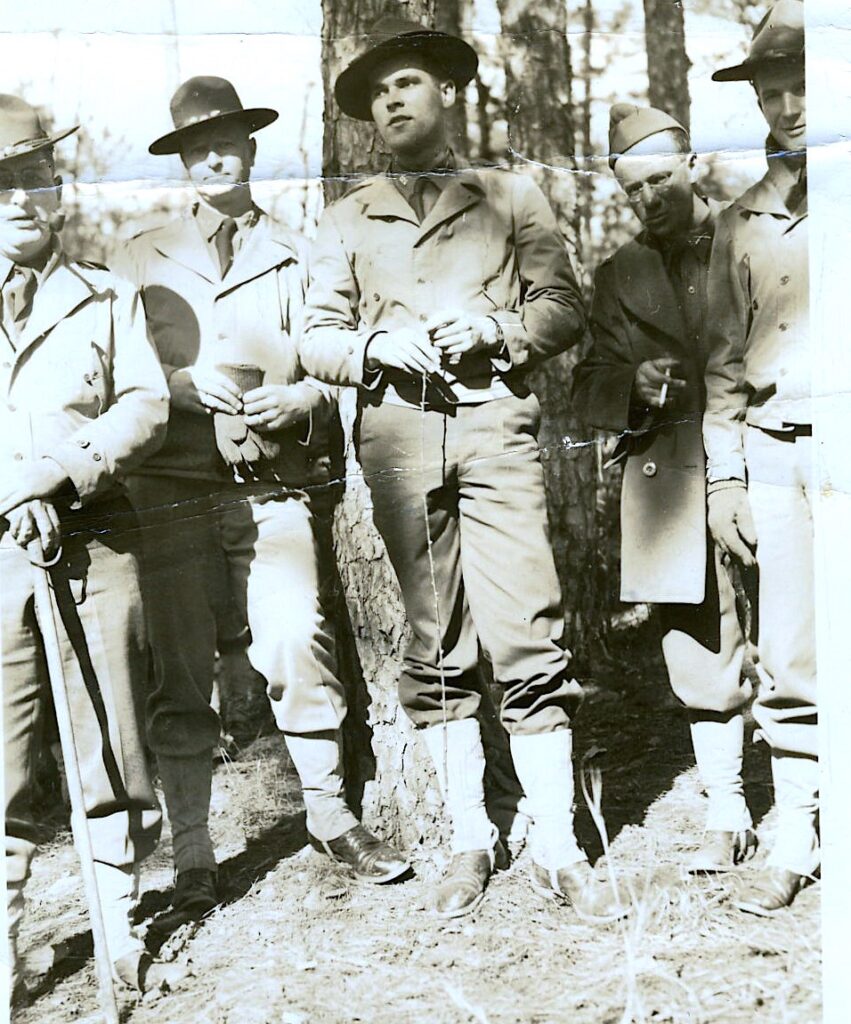My dad thought his life had been spared. Multiple times.
He wasn’t a churchgoer, nor what you’d call a religious man. In fact, his two oldest children were off at college when he started attending the church we attended with our mom. It happened when a committee – doubtless trying to recruit him – asked his advice on repairing the church stairs. He kept attending because of the coffee-and-donuts social hour after services. Coincidentally, I think my mom was becoming agnostic during that time. But we didn’t talk about these things.
We did talk about lots of other things, especially at the dinner table, and sometimes got fired up, especially since my parents belonged to different political parties. Mom would complain if Dad told his army stories, saying he was glorifying war. But that was like saying “Catch-22” glorified war. Dad’s stories underscored the absurdity of bureaucracy and might have made for tamer conversations than discussing major events of the late ‘60s.
His irritation with bureaucrats dogged him. Once when angered by something my brother’s school had done, he called the prinicipal to complain. After listening to an explanation he roared, “Why did Napoleon’s invasion of Russia fail?” (pause) “Bureaucratic stupidity, dammit!”
It likely started when red-tape trapped him in high school until his mother came up with the tuition money, which took a few years. After they finally let him graduate, he joined ROTC so he could afford college. Having surmised that the US would enter WWII, despite all the doubters, he thought being an officer would be better than the infantry.
Upon graduation, he was an army man eager to go overseas. But bureaucracy reared its head and he was removed from his first unit because there were “too many Clarks.” That unit was sent off and experienced nearly a hundred percent casualties. This gave him pause.
Another time, martini in hand while at an officers’ costume party, Dad found himself chatting with a very tall person dressed as George Washington. He had just delivered the punchline to an off-color joke when he realized that “George Washington’s” spouse was standing behind him. It turned out that the spouse was the general and “George” was actually the general’s wife. Dad was again removed from his unit who were sent off mostly to die.
In his next unit he once was standing at a blackboard with his back to the room, drawing diagrams to show the class how tactics could help keep them alive, when a blackboard eraser was hurled at his head. Looking up, he saw the general du jour at the door who sputtered, “For Christ’s sake Clark! Do you want to get through this war unscathed?” Leaving Dad behind, that unit shipped off and suffered a high percentage of casualties.
Several more units met tragic ends after having transferred Dad as punishment for his perceived non-conformity that didn’t measure up to bureaucratic standards. He finally made it to France and Germany and, of course, garnered more stories of the absurd decisions of his higher-ups. After the war he faced a similar reception when applying for work at large companies, so he started and became successful at his own business.
As I indicated, my family didn’t talk about soul, spirit, God and religion. So imagine my surprise when, walking to the store with Dad – then in his 80s – he said, “One wonders what all this is about?” He elaborated by reminding me of how he’d been removed many times from his army units just before his comrades were sent to their deaths. He puzzled over why his life had been spared and he’d gone on to live a long happy family life.
In that moment I understood that although Dad had never been a religious man, he was a deeply spiritual man. And none of us knew how to talk about such things.


Have you read SYLVIE DENIED yet? I invite you to grab your copy, and please leave an honest review when you do.

Wonderful! What a great slice of life essay, Ms. Clark Vance.
Thanks, Ms. Engle ❤️